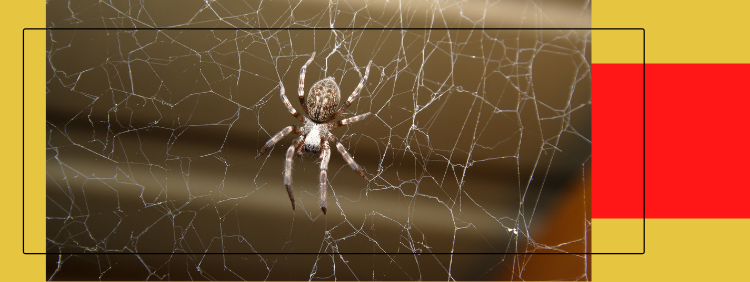Guelph Pest Control: Can a House Spider Bite Be Dangerous?

Many spiders are so tiny that you don’t notice them until after they bite. By then, it may be impossible to tell which kind of arachnid sunk its fangs into you. While bug bites seem like a fact of life, they can actually be quite dangerous. If you regularly wake up with red, irritated spots, you may require spider removal.
In the meantime, what can you do about an inflamed bite? The first step to treatment is ascertaining if your ailment is, in fact, caused by a spider.
What Do Spider Bites Look Like?
Spider bites look like red bumps and the skin around the bite may be swollen and itchy, similar to mosquito bites. In fact, it’s challenging to tell one from the other unless venom is involved.
Interestingly, spider bites are rarer than many people think. Mosquitoes feed on blood, leading them to penetrate the skin, but spiders don’t look to humans for their meals. Instead, bites happen when arachnids need to defend themselves. The smallest spiders can’t even breach the skin, so you may not realize you’ve been bitten at all. Those that can pierce the epidermis instinctively bear their fangs when trapped or hurt.
How Long Do They Take To Heal?
Bites can take as long as 10 days to mend, though they’ll usually heal faster when properly tended. Scratching prolongs the process and opens the skin, exposing your system to bacteria and increasing the likelihood of infection. Though the site may itch, it’s crucial not to scratch or rub the affected area.
What Are the Symptoms?
Some bites are practically symptomless beyond discolouration. In the worst cases, sites redden within 15 minutes, signalling the presence of venom. If you notice swift discolouration, also keep an eye out for the following:
- High blood pressure
- Restlessness or anxiety
- Fever
- Chills
- Vomiting
- Nausea
- Increased sweating
- Muscle cramping or pain
- Difficulty breathing
- Itchiness
- Rash
- Pain radiating from bite
These symptoms are commonly associated with brown recluse or black widow bites, both of which are venomous. The intensity of symptoms varies by person, but they can become excruciating if the wound isn’t treated. Individuals allergic to spider bites may also experience swelling:
- Around the eyes
- Of the tongue
- Of the lips
- Of the throat
When Should You See a Doctor?
If you experience an allergic reaction to a spider bite, you should immediately seek medical help, as the experience could be fatal. You should also see a doctor if you know the bite came from a black widow or brown recluse, as the venom can also cause death.
Any symptoms beyond redness and mild irritation are also signs to seek assistance. Additionally, you should see a healthcare professional if a nonvenomous bite becomes infected. Signs of infection include the following:
- Red lines extending from the affected area
- Spreading redness
- Pus
- Increased swelling
- The affected area feels warm
How Should You Treat a Spider Bite?
Once you realize you’ve been bitten, you should immediately treat the area. First, apply antibiotic ointment to prevent infection. Next, elevate and apply a cold compress to reduce inflammation. If the site is extremely itchy, you can take an over-the-counter antihistamine for relief.
When Should You Seek Spider Removal?
You should seek spider removal whenever you encounter signs of an infestation:
- Webs
- Egg sacs
- Multiple spiders
Getting rid of arachnids early is key to avoiding a bite.
When dealing with spiders, you need the experts at Truly Nolen Canada. We can identify dangerous arachnids and safely eliminate them. We also offer other pest control in Guelph, such as rodent, ant and terminate removal services. If you suspect uninvited guests, you should schedule an inspection by calling or completing our online form.